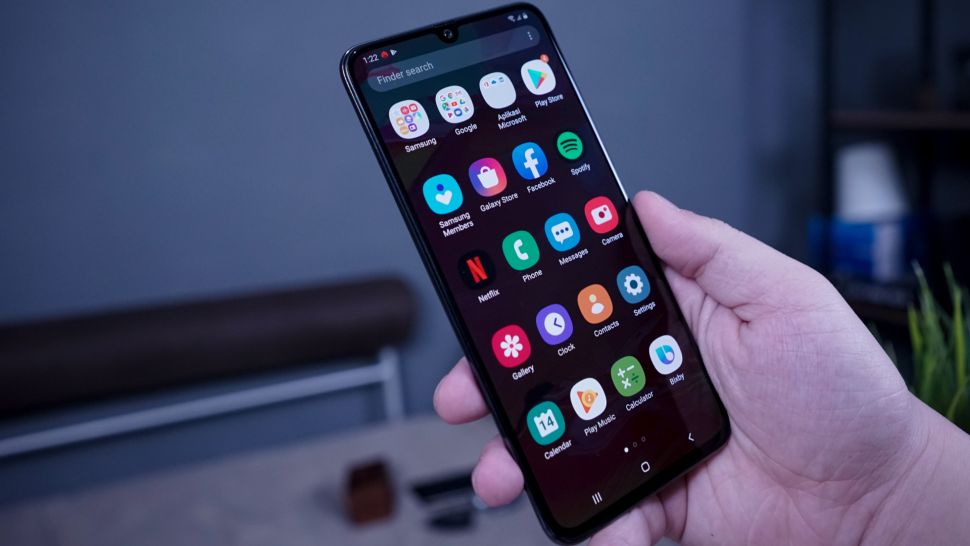This Android malware poses as real apps to take you to dangerous sites and flood your phone with spam
Plus it installs unwanted apps and sends you fake notifications

Here at Tom’s Guide our expert editors are committed to bringing you the best news, reviews and guides to help you stay informed and ahead of the curve!
You are now subscribed
Your newsletter sign-up was successful
Want to add more newsletters?
Join the club
Get full access to premium articles, exclusive features and a growing list of member rewards.
A new version of the Konfety malware that attacks the best Android phones now uses distorted APK files as well as other methods in order to avoid being detected and analyzed.
As reported by Bleeping Computer, this latest Konfety malware strain, which is neither spyware nor a remote access trojan, can pretend it is a legitimate app by copying both the branding and names of real apps from the Google Play Store.
Konfety mimics real products available on the Play Store, though it does not reproduce the same functionality of those apps. Likewise, it's distributed and promoted through third-party stores. This is a method that researchers have sometimes called a ‘decoy twin’ or ‘evil twin’ tactic, and is exactly why it is recommended to only download software from trusted publishers and to avoid installing APK files from third-party app stores.
Still, some users will resort to searching on these marketplaces for supposedly free versions of popular apps either because they don’t have access to Google services as their Android device isn’t supported or because they don’t want to pay for legitimate software.
Here's everything you need to know about this new Android threat including some tips and tricks to help keep your phone safe from hackers and malware free.
Hiding in plain sight

Once Konfety has been installed on a victim’s device it uses a malformed ZIP structure to avoid analysis and detection, and will begin its malicious behavior. It can redirect users to dangerous websites, install unwanted apps and provide fake browser notifications. Additionally, it can produce ads using a CaramelAds SKD and exfiltrate device data like installed apps, network configuration and system information.
Thanks to the capabilities of this latest version, it can also hide its app icon and name, and then use geofencing to alter its behavior depending on the region the device is located in. It performs all its nefarious hidden features courtesy of an encrypted DEX file inside the APK which is loaded and decrypted during runtime, and contains hidden services declared in the AndroidManifest file which allows for the delivery of more dangerous modules.
Get instant access to breaking news, the hottest reviews, great deals and helpful tips.
Konfety also manipulates the APK files to confuse and break static analysis and reverse engineering tools by signaling that the file is encrypted when it is not, which triggers a false password prompt when trying to inspect the file. This can block or delay access to the APKs contents.
Next, critical files within the APK are declared using BZIP compression, which is not supported by analysis tools and this results in a parsing failure. Android ignores the declared method and returns to the default processing which allows Konfety to install and run on the device without issue.
How to stay safe from Android malware

First and foremost, to avoid falling victim to the Konfety malware and other Android malware strains, it's essential that you don't sideload apps on your devices.
While it may seem convenient, doing so puts you at serious risk from malware, adware, spyware and other threats. The reason being is that sideloaded apps from third-party app stores or those downloaded as APK files don't go through the same rigorous security checks that they would on the Google Play Store or other first-party app stores like the Samsung Galaxy Store.
From there, you want to make sure that Google Play Protect is enabled on your Android phone. This pre-installed security app scans all of your existing apps and any new ones you download for malware. For extra protection though, you may also want to install and run one of the best Android antivirus apps alongside it.
Malicious apps are one of the easiest ways for hackers and other cybercriminals to establish a foothold on your devices, so they likely won't be going anywhere anytime soon. Instead, it's up to you to carefully vet each and every app you download and install. You also want to keep in mind that if an app sounds too good to be true, it probably is.
By sticking to official, first-party app stores and by limiting the number of apps you have installed on your phone overall, you should be able to safely avoid this new version of Konfety and other Android malware strains entirely.
Follow Tom's Guide on Google News to get our up-to-date news, how-tos, and reviews in your feeds. Make sure to click the Follow button.
More from Tom's Guide
- 5.4 million hit in major healthcare data breach — names, emails, SSNs and more exposed
- Google Gemini flaw exploited to turn AI-powered email summaries into the perfect phishing tool — everything you need to know
- This new Android attack could trick you into compromising your own phone — everything you need to know

Amber Bouman is the senior security editor at Tom's Guide where she writes about antivirus software, home security, identity theft and more. She has long had an interest in personal security, both online and off, and also has an appreciation for martial arts and edged weapons. With over two decades of experience working in tech journalism, Amber has written for a number of publications including PC World, Maximum PC, Tech Hive, and Engadget covering everything from smartphones to smart breast pumps.
You must confirm your public display name before commenting
Please logout and then login again, you will then be prompted to enter your display name.
 Club Benefits
Club Benefits










